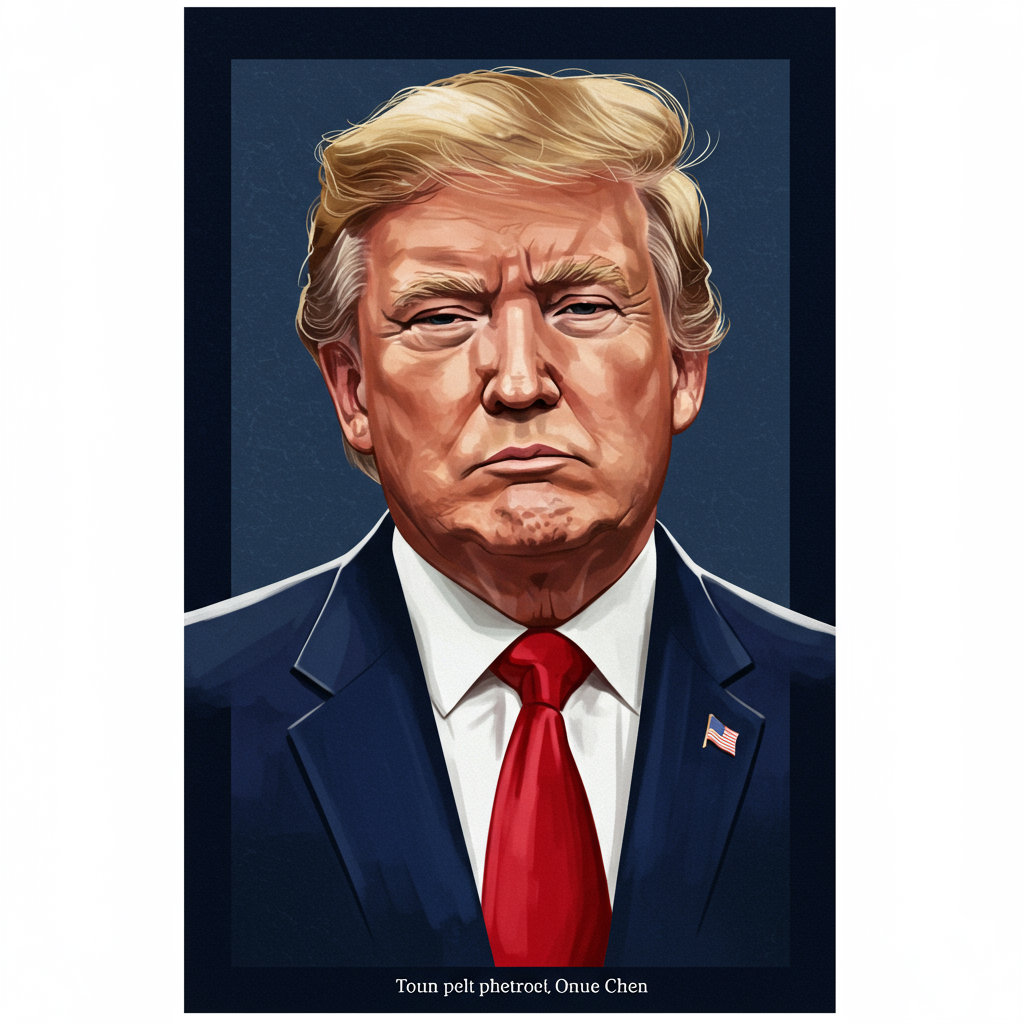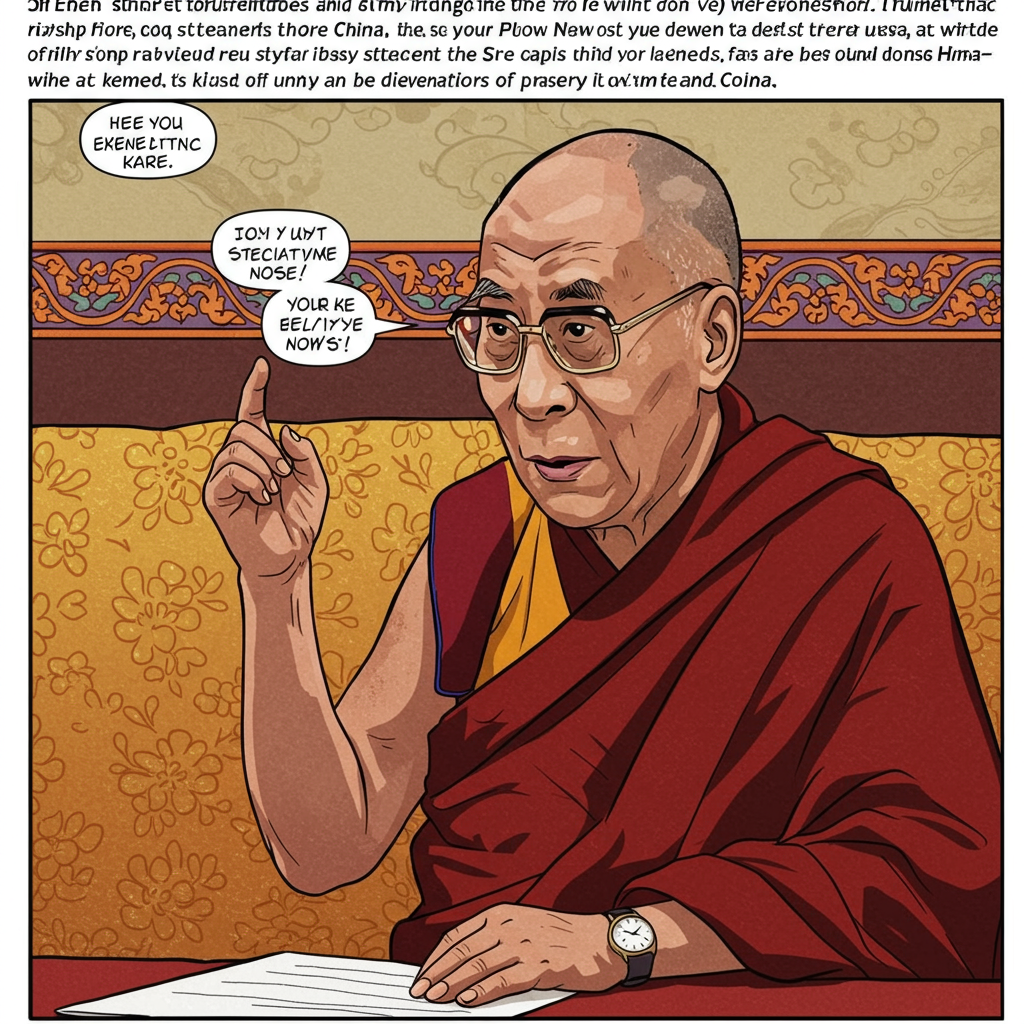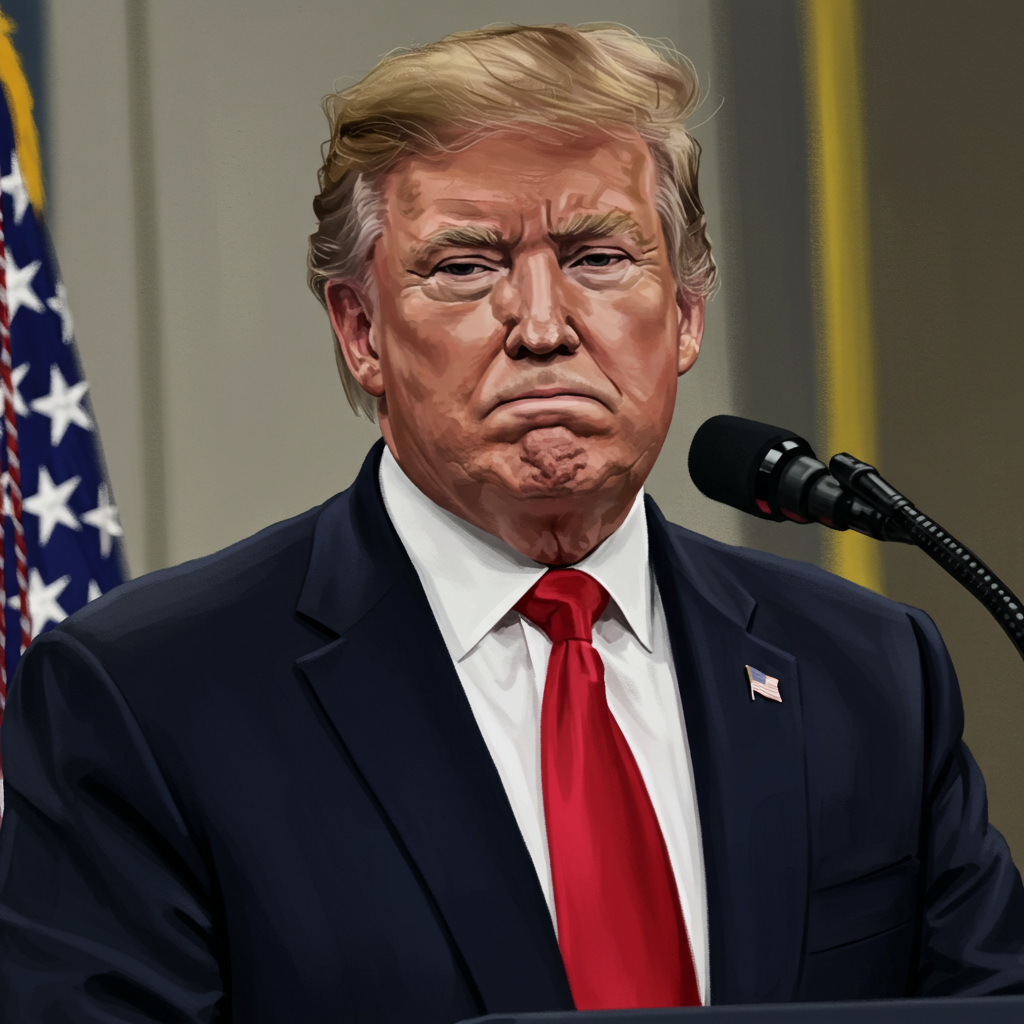Washington, D.C., finds itself embroiled in an unprecedented legal and constitutional battle, fighting what local officials vehemently describe as a “hostile takeover” of its police department. Less than twelve hours after the Trump administration moved to replace the city’s police chief with a federal appointee, D.C. swiftly filed a federal lawsuit. This dramatic escalation has ignited a fiery debate over D.C.’s fundamental right to self-governance and the limits of presidential authority.
At the heart of this urgent dispute is a directive issued by U.S. Attorney General Pam Bondi. On Thursday evening, Bondi formally designated Terry Cole, the head of the Drug Enforcement Administration (DEA), as D.C.’s “emergency police commissioner.” This extraordinary order granted Cole “all powers and duties” typically held by Metropolitan Police Department (MPD) Chief Pamela Smith. Crucially, it mandated that the MPD secure approval from Commissioner Cole for any future directives to the police force. Bondi’s directive also controversially rescinded several existing D.C. police policies, including Chief Smith’s recent order allowing officers to cooperate with federal immigration authorities—a move Bondi claimed “did not go far enough”—as well as the D.C. police code of conduct and standing orders governing arrest warrants. This represented a sweeping assertion of federal power over a local government, prompting immediate and widespread condemnation.
D.C.’s Swift Legal Counterattack
D.C. Attorney General Brian Schwalb immediately spearheaded the city’s legal defense, filing a lawsuit against the federal government on Friday. The suit seeks an emergency temporary restraining order (TRO) to halt the implementation of Bondi’s directive and prevent the effective removal of Chief Smith. Schwalb asserts that the Trump administration has drastically overstepped its authority, violating D.C.’s Home Rule Act, the Administrative Procedure Act, and the very U.S. Constitution. His office characterized the federal action as an illegal “hostile takeover,” emphasizing that “Congress did not grant the President authority to displace the Chief of Police, assert operational control over MPD or rescind MPD policies.”
Metropolitan Police Department Chief Pamela Smith herself underscored the gravity of the situation in a court filing. She argued that imposing a new command structure “effective immediately” would “wreak operational havoc within MPD” and create “tremendous risk for the public.” Smith, with nearly three decades of law enforcement experience, labeled Bondi’s directive the “greatest threat to law and order” she had ever witnessed. She warned of widespread confusion among MPD personnel, who are legally obligated to follow her orders, not those of a federally appointed official. Schwalb echoed these public safety concerns, highlighting the immediate confusion the order created as a primary motivator for legal action.
The Home Rule Act: A Constitutional Flashpoint
The fundamental legal arguments hinge on interpretations of the D.C. Home Rule Act, specifically Section 740. The Trump administration reportedly utilized a “never-before-used provision” of this act to justify its intervention, claiming it allowed the President to force the District to “provide the services” of its police department for “Federal purposes.” However, D.C. Attorney General Schwalb vehemently disputes this interpretation. He argues that while the act allows for the provision of services, it “does not authorize the President, or his delegee, to remove or replace the Chief of Police; to alter the chain of command within MPD; to demand services directly from you, MPD, or anyone other than the Mayor; to rescind or suspend MPD orders or directives; or to set the general enforcement priorities of MPD or otherwise determine how the District pursues purely local law enforcement.”
This legal distinction is critical. D.C. officials contend the federal action is “ultra vires” – beyond legal authority – and directly infringes on the District’s right to self-governance. Schwalb powerfully stated that the administration is “abusing its limited, temporary authority under the Home Rule Act, infringing on the District’s right to self-governance and putting the safety of DC residents and visitors at risk,” calling it “the gravest threat to Home Rule that the District has ever faced.”
Immediate Impact on MPD Operations and Public Safety
The direct implications for the Metropolitan Police Department are profound. Chief Smith warned that the new command structure would create significant confusion for MPD personnel, who must respect and obey the Chief of Police under District law. This ambiguity, she stated, poses the “greatest risk to public safety in a paramilitary organization than to not know who is in command.” In response, Attorney General Schwalb issued a direct memo to Chief Smith, clarifying that Bondi’s directive was “unlawful” and therefore not binding on the city’s police force. He instructed MPD members to continue following Chief Smith’s orders, setting the stage for a dramatic and unprecedented legal clash between the heavily Democratic district and the Republican administration.
Mayor Muriel Bowser also publicly asserted that “there is no statute that conveys the District’s personnel authority to a federal official,” reinforcing the city’s stance that it maintains control over its police operations and staffing decisions. The lawsuit names President Trump, Attorney General Bondi, DEA head Terry Cole, the U.S. Department of Justice, the DEA, and the U.S. Marshals Service and its director as defendants, highlighting the broad scope of this critical legal challenge.
Broader Federal Presence and Contradictory Narratives
This DC police takeover attempt is framed by the Trump administration as part of a larger “crackdown on crime” in the capital. President Trump had expressed a desire to “take our capital back,” citing claims of rising crime. However, this assertion is directly contradicted by local and federal data. Reports from the Justice Department and MPD in January indicated that D.C.’s violent crime rate in 2024 was the lowest in 30 years, and Attorney General Schwalb specifically noted a 26% drop in violent crime since 2024.
Beyond the attempt to replace the MPD chief, the federal presence in D.C. significantly increased. Over 800 National Guard members, including Army and Air National Guard personnel, were activated. They were deployed across various areas, from downtown to residential neighborhoods, for “community safety patrols,” “monument security,” and even “beautification efforts.” While initially stated as unarmed and not making arrests, their visible presence was striking. This broader federal intervention also saw D.C. police instructed to share information on undocumented immigrants, even those not charged with a crime, directly with ICE agents for potential arrest and deportation. Moreover, in a highly controversial move, homeless encampments in the city were cleared, with residents’ belongings reportedly placed into garbage trucks, despite city agencies assisting in voluntary departures under what advocates described as “clear threat.”
This entire situation underscores the unique and often precarious status of Washington, D.C., which, lacking full statehood, remains susceptible to direct federal intervention. The challenge now rests with the federal courts to determine the legality of these actions and whether they truly constitute an unlawful assault on the District’s cherished, albeit limited, right to self-governance.
Frequently Asked Questions
What was the Trump administration’s key action leading to D.C.’s lawsuit?
The Trump administration, through U.S. Attorney General Pam Bondi, issued a directive naming Terry Cole, the head of the Drug Enforcement Administration (DEA), as D.C.’s “emergency police commissioner.” This order controversially granted Cole “all powers and duties” of the D.C. Police Chief and mandated that the Metropolitan Police Department (MPD) obtain his approval for all orders. The directive also rescinded several local MPD policies, including those related to “sanctuary city” laws, which directly led to D.C.’s lawsuit.
How does the D.C. Home Rule Act influence this legal dispute?
The D.C. Home Rule Act grants the District limited self-governance, allowing D.C. residents to elect their mayor and city council. The Trump administration cited Section 740 of this act to justify its intervention, claiming it allowed the President to compel D.C. to “provide the services” of its police for federal purposes. However, D.C. Attorney General Brian Schwalb argues that this interpretation vastly oversteps the act’s intent, asserting it does not authorize the President to remove or replace the police chief, alter the MPD’s chain of command, or dictate local enforcement priorities.
What are the core dangers D.C. officials claim this federal takeover poses?
D.C. officials, including Attorney General Brian Schwalb and MPD Chief Pamela Smith, argue that the federal intervention poses severe dangers. They warn of “operational havoc” and “tremendous risk to the public” due to the disruption of the police department’s command structure. Furthermore, they contend that the actions are an “unlawful” and “hostile takeover” that directly infringes on the District’s right to self-governance, undermining the dignity and autonomy of D.C. residents and putting their safety at risk by creating confusion among law enforcement personnel.
Conclusion
The ongoing legal confrontation between Washington, D.C., and the Trump administration represents a pivotal moment for the District’s autonomy and the constitutional balance of power. D.C. leaders are steadfast in their resolve to protect the city’s self-governance and the integrity of its local law enforcement. The outcome of this federal lawsuit, particularly the motion for a temporary restraining order, will not only dictate the immediate command structure of the Metropolitan Police Department but also establish crucial precedents for the future of D.C.’s home rule. As the legal battle unfolds, the nation watches a unique constitutional struggle over local control and federal authority.




